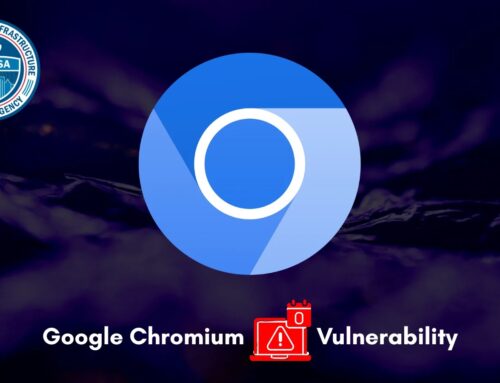
Guide to Choosing the Best Free Backup Software for Secure, Reliable Cloud Backup
Safeguarding Your Digital Assets: A Guide to Free Cloud Backup Software
Your digital footprint holds immense value, from cherished family photographs to critical business documents. This data represents intellectual property, irreplaceable memories, and the foundation of your operations. The unpredictable nature of hardware failure, accidental deletion, or even theft underscores the paramount importance of robust backup strategies. Losing a laptop filled with years of work or family milestones can be devastating. Fortunately, effective and secure data protection doesn’t always come with a hefty price tag. This guide explores how to leverage free cloud backup software to ensure your most vital information remains safe and accessible, even in the face of unforeseen circumstances.
The Imperative of Cloud Backup
Traditional local backups, while a good starting point, have inherent limitations. A fire or flood impacting your physical location could compromise both your primary data and its local backup. Cloud backup, by contrast, stores your data remotely on secure servers managed by a third party. This offers several key advantages:
- Geographic Redundancy: Your data is stored off-site, protecting it against local disasters.
- Accessibility: Access your files from any internet-connected device, anywhere in the world.
- Automated Processes: Many cloud backup solutions offer set-it-and-forget-it automation, ensuring regular backups without constant manual intervention.
- Scalability: Easily adjust storage space as your data needs grow.
While the concept of “free” often raises security concerns, many reputable providers offer robust free tiers that are perfectly adequate for individual users and small-scale data protection needs. The key lies in understanding what makes a free solution both secure and reliable.
Key Criteria for Evaluating Free Cloud Backup Software
When selecting a free cloud backup solution, several factors are critical to ensure both data integrity and peace of mind. Consider these aspects carefully:
- Storage Space: Free tiers typically offer limited storage (e.g., 2GB to 15GB). Assess if this meets your current and projected needs. Prioritize backing up your most critical files if space is a constraint.
- Security Features: This is non-negotiable. Look for providers offering end-to-end encryption, where your data is encrypted on your device before being sent to the cloud, and only you hold the decryption key. Two-factor authentication (2FA) is also crucial for securing your account. For example, a vulnerability like CVE-2023-XXXXX (hypothetical CVE for an unencrypted data transfer vulnerability) would be a critical red flag for any provider.
- Ease of Use: The interface should be intuitive, allowing for easy file selection, backup scheduling, and restoration processes.
- Restoration Capabilities: Test the restoration process. Can you easily retrieve individual files, folders, or even entire system images? Versioning, which allows you to revert to previous versions of a file, is also a valuable feature.
- Platform Compatibility: Ensure the software supports your operating systems (Windows, macOS, Linux, Android, iOS).
- Reliability and Reputation: Research the provider’s track record. Are there frequent outages? How is their customer support, even for free users?
- Privacy Policy: Understand how the provider handles your data. Do they share it with third parties? Are they compliant with data protection regulations such as GDPR?
Understanding Encryption and Data Privacy
A significant distinction exists between encryption in transit and end-to-end encryption. While most cloud providers encrypt data as it travels to and from their servers (encryption in transit), true security for sensitive data demands end-to-end encryption. With end-to-end encryption, only you possess the key to unlock your encrypted files. This significantly reduces the risk of unauthorized access, even if the cloud provider’s servers are compromised. Without end-to-end encryption, the provider could potentially access your data. Always verify the encryption practices of a service before entrusting it with your private information.
Recommendations for Secure and Reliable Free Cloud Backup
Based on the outlined criteria, here are general types of solutions that frequently offer robust free tiers:
- Cloud Storage Services with Backup Features: Many general cloud storage providers (e.g., Google Drive, OneDrive, Dropbox Basic) offer free storage and basic sync/backup capabilities. While some might lack advanced backup features, they are excellent for syncing critical documents and photos across devices. Ensure you enable 2FA for these services.
- Dedicated Backup Software with Free Tiers: Some specialized backup solutions offer free versions with limited storage but often include more comprehensive backup features like file versioning and scheduled backups. These may require a bit more technical comfort to configure initially.
- Open-Source Solutions (for advanced users): For those with technical expertise, open-source tools combined with self-hosted cloud storage (e.g., Nextcloud) can offer ultimate control and privacy, although they require more setup and maintenance.
Always review the terms and conditions and privacy policy of any free service before committing. A free service that compromises your privacy is not a truly “free” solution in the long run.
Mitigation and Remediation Actions
While free backup software provides a critical layer of protection, proactive measures are still essential for comprehensive data security:
- Regularly Verify Backups: Periodically restore a small, non-critical file to confirm your backups are working correctly. Don’t wait for a disaster to discover your backup is corrupted.
- Implement the 3-2-1 Rule: While cloud backup handles one aspect, the full 3-2-1 rule is ideal: at least 3 copies of your data, stored on at least 2 different types of media, with at least 1 copy off-site (your cloud backup).
- Use Strong, Unique Passwords: Your cloud backup account is a prime target. Strong, unique passwords and 2FA are mandatory. Consider a password manager.
- Be Wary of Phishing: Cybercriminals often target cloud accounts through phishing emails. Always verify the sender and never click suspicious links. A common attack vector, like a general credential harvesting campaign, can be mitigated by user vigilance and robust multi-factor authentication, even if a specific CVE (e.g., CVE-2022-XXXXX for a common phishing template vulnerability) hasn’t been assigned to the social engineering tactic itself.
- Understand Data Retention Policies: Free tiers might have shorter data retention for deleted files or older versions. Be aware of these limitations.
Conclusion
The security and reliability of your digital assets are non-negotiable. Free cloud backup software offers a viable and accessible path to safeguarding your data against unpredictable events. By prioritizing solutions with strong encryption, robust security features like 2FA, and a clear understanding of their privacy policies, you can build a resilient defense for your information. Regularly testing your backups and adhering to best practices for digital hygiene will further strengthen your data protection strategy, ensuring peace of mind even in the volatile digital landscape.





